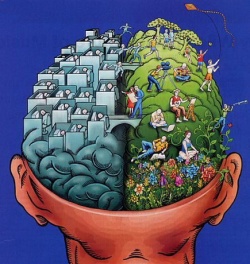Difference between revisions of "Mrakśa"
Jump to navigation
Jump to search
| Line 11: | Line 11: | ||
[[Category:Buddhist Terms]] | [[Category:Buddhist Terms]] | ||
| + | [[Category:Buddhist psychology]] | ||
Revision as of 07:13, 20 February 2013
Mrakśa (Sanskrit; Tibetan phonetic: chabpa) is a Buddhist term translated as "concealment" or "slyness-concealment". It is defined as concealing or covering up one's faults or uncommendable actions, from either oneself or others. It is one of the twenty subsidiary unwholesome mental factors within the Mahayana Abhidharma teachings.
The Abhidharma-samuccaya states:
- What is slyness-concealment? It is to perpetuate a state of unresolvedness because of its association with dullness and stubbornness [gti-ruug] when one is urged towards something positive. Slyness-concealment has the function of preventing one from making it clean break with it and feeling relieved.
Alan Wallace states: "Concealment from one's own vices is a type of delusion that stems from ignorance. This includes self-concealment."
